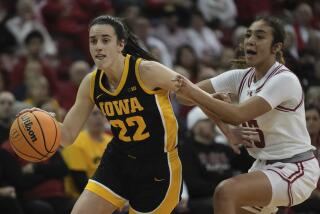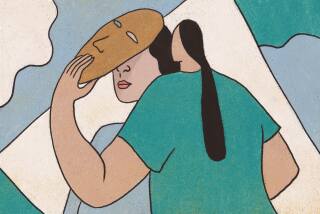Review: ‘The Rachel Divide’ tackles a complex case of false racial identity
A few years before the term “fake news” became commonplace, the media covered the strange case of Rachel Dolezal: a Spokane-based white woman “identifying” as black and accused of lying about being the target of racist hate crimes. Was Dolezal drawing attention to the slipperiness of cultural identity? Or did her ruse undercut the very causes she supports?
Laura Brownson’s documentary “The Rachel Divide” grapples with Dolezal’s contradictions, as well as with the inherent problems of making a movie about her. Dolezal’s a fascinating figure, at once enigmatic and representative of larger issues (as indicated by the title’s “racial”/“Rachel” pun). But why should an impostor get attention instead of actual black women?
To address this, Brownson gives over a hefty portion of “The Rachel Divide” to Dolezal’s nonwhite critics, who thoughtfully argue that however she sees herself, she can’t truly know what it’s like to be black when she has the option to revert to her original race.
The bulk of the doc, though, is about Dolezal’s day-to-day life, as she raises her kids, promotes her memoir and seems strangely unaffected by the barbs aimed at her — some of which are online flaming, some of which are violent threats, some of which may be fake.
“The Rachel Divide” never quite cracks Dolezal’s facade (if it even is a facade). But Brownson does move beyond the “think-piece” take on a real person — while also questioning whether she should.
------------
‘The Rachel Divide’
Not rated
Running time: 1 hour, 40 minutes
Playing: Laemmle Music Hall, Beverly Hills; also streaming Netflix
See the most-read stories in Entertainment this hour »
Movie Trailers
More to Read
Only good movies
Get the Indie Focus newsletter, Mark Olsen's weekly guide to the world of cinema.
You may occasionally receive promotional content from the Los Angeles Times.






